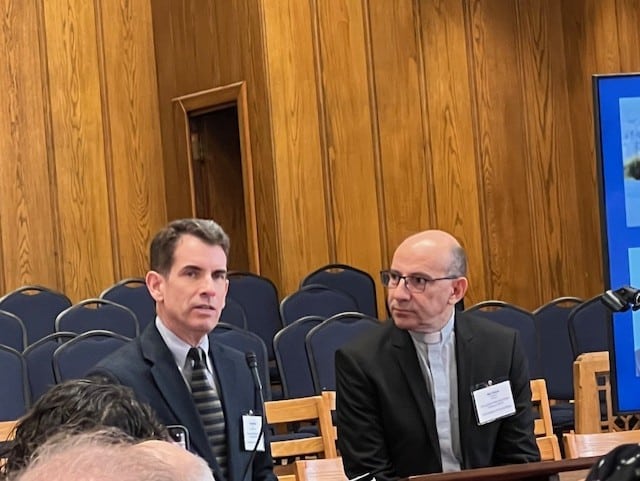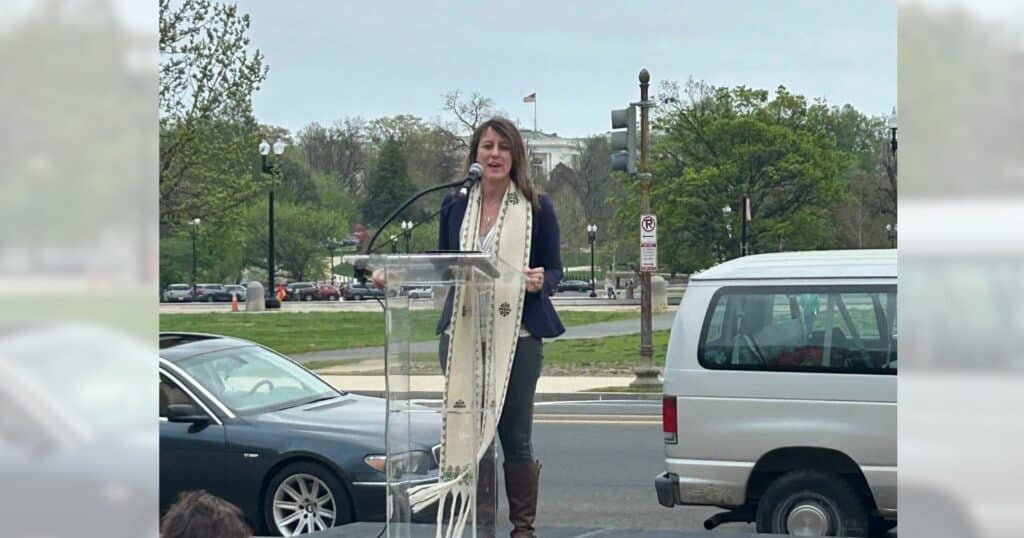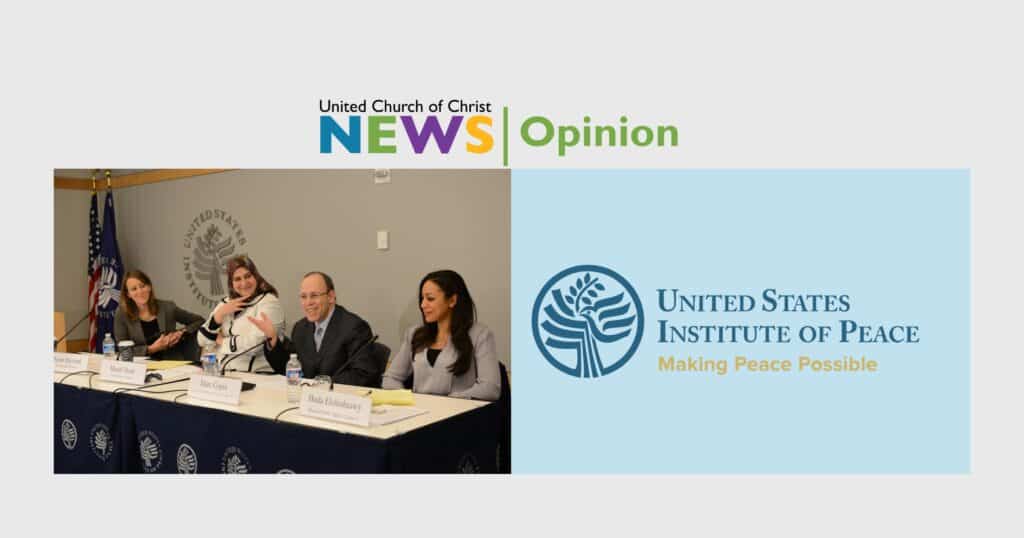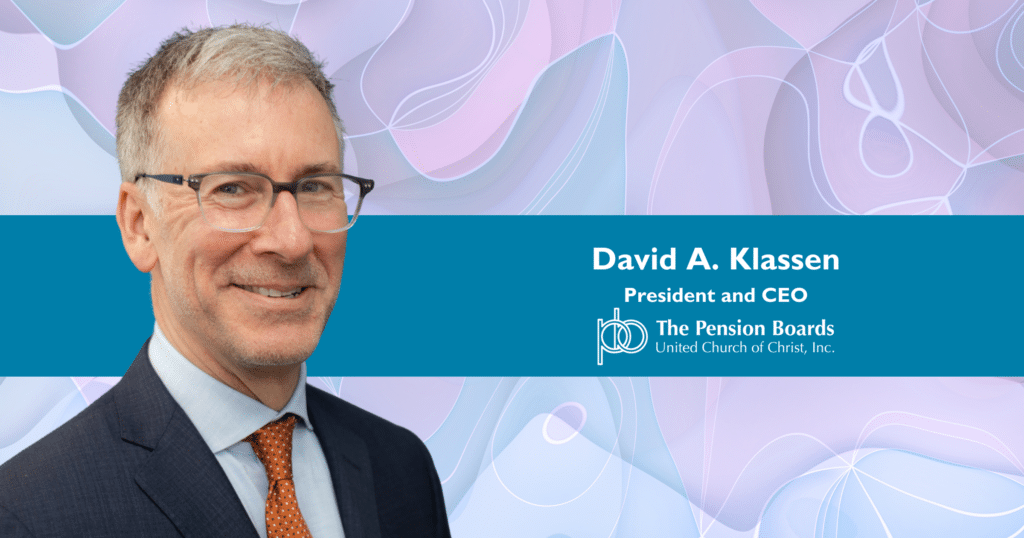Churches for Middle East Peace marks 40th anniversary: Words and deeds prevail at advocacy summit
Churches for Middle East Peace (CMEP), a coalition of more than 30 national churches and organizations, including the United Church of Christ, marked a milestone in its collective pursuit of peace, celebrating its 40th anniversary at the annual Advocacy Summit held early April in Washington D.C.
“CMEP has truly had a remarkable history as it has worked across both aisles in Congress and in churches to faithfully witness for peace and justice in the Middle East,” said Michael Neuroth, director of UCC’s Office of Public Policy and Advocacy.
The celebratory champagne, though, wasn’t flowing freely as this year’s gathering carried the burgeoning weight of the ongoing crisis in Gaza. According to the Rev. Dr. Peter Makari, global relations minister for the Middle East and Europe for Global Ministries, the CMEP Summit, scheduled months before the escalation of violence in the Middle East, was “originally imagined to highlight the four decades of witness of churches through Churches for Middle East Peace.” But the present moment was much more pressing.
“The situation in Gaza and Israel/Palestine that prevails is more evidence why the churches need to continue to be as involved as we have been,” said Makari.
Neuroth added that the “CMEP is pressuring our government weekly, if not daily, to end the current violence and bring about a permanent ceasefire and ultimately a just peace.”
Fireside chats more urgent than cozy
The summit, running from April 9-11, opened with a dinner, providing an opportunity to pause and give thanks for four decades of pursuing peace. The following day featured conversations and panel discussions from members including the Rev. Dr. Mae Elise Cannon, executive director of CMEP and an ordained pastor in the Evangelical Covenant Church. (Click here for a complete list of summit speakers.)
Makari hosted one of the conversations — described as “fireside chats” — with the Rev. Dr. Mitri Raheb, a leading Palestinian theologian and author of several books, including Decolonizing Palestine and Faith in the Face of the Empire.

Raheb, though, had something more pressing to discuss. As president and founder of Dar al-Kalima University in Bethlehem, he shared how the university’s Gaza branch, which focused on empowering artists in Gaza, was destroyed just a few weeks before the start of the summit. (Read story here.)
Raheb spoke of the impact of Israel’s war on Gaza on Dar al-Kalima’s branch campus, noting not just the destruction, but the inspiring ways that the faculty were continuing to offer support and care for the community.
“He also challenged us to be open to new ways of activism, suggesting that the American Christian community can engage with other communities to be effective,” said Makari.
Helen Smith, international policy advocate for the United Church of Christ, Washington D.C. office, was among the participants being challenged in new ways. This was Smith’s first time attending the CMEP summit and she found it “overwhelmingly powerful” given the current state of the Middle East.
“I was in awe and abundantly grateful for the Palestinians from the West Bank that took the risk of coming to the U.S. in the moment as the apartheid against their families, friends and people as a whole has escalated so drastically in the last six months,” said Smith, adding that beyond the “heartbreaking” stories, where were also moments of laughter and encouragement.
“Churches for Middle East Peace has clearly lasted for 40 years, not only because it is a vital resource, but because of the organizations ability to unite us in faith, empathy, understanding and justice,” she said.
Witnessing in the halls of power
The Rev. Susie Hayward, associate minister for justice organizing and adult faith formation, Mayflower Community Congregational Church, Minneapolis, Minn., was grateful to participate in the summit as she, like Smith, valued the opportunity to hear conversations from Palestinian Christians. “They shared insights, griefs and hopes that fueled our meetings on the Hill the following day,” Hayward added.
While Hayward was “heartened” by what the delegation from Minnesota heard in those meetings, especially directly from Senator Tina Smith (D-MN) and Representative Ilhan Omar (D-MN), she is also realistic.
“I know there is much work to be done and [still] many barriers to U.S. policies supportive of a just peace,” she said.
The timing of the summit, which was after the observance of Holy Week and the celebration of Easter Sunday, also proved to be powerful for Hayward’s own theological reflections.
“As I walked the halls of Congress, Jesus’ words and actions from Palm Sunday rang in my ears, as he wept over those for whom the ways of peace are hidden. I suspect that Jesus would be weeping over the misery transpiring in Gaza,” said Hayward.
“And the words of the Risen Christ, his last directives to his disciples — ‘feed my people’ — spurred me. As his follower, it felt important to continue the freedom march from Palm Sunday into Washington D.C. proclaiming peace,” she added.
Donna Jackson is a communications specialist with the United Church of Christ.
Content on ucc.org is copyrighted by the National Setting of the United Church of Christ and may be only shared according to the guidelines outlined here.
Related News
Send a prayer shawl along to General Synod 35
There’s been a buzz about Missouri, Kansas – can you hear it? It’s more of a clicking...
Read MoreOpinion: UCC pastor and former Institute of Peace Staffer calls for action in defense of peace
Editor’s Note: The United States Institute of Peace (USIP), an independent institute founded...
Read MorePension Boards appoints David A. Klassen as its President, CEO
The Pension Boards, an affiliated ministry of the United Church of Christ recently announced its...
Read More



